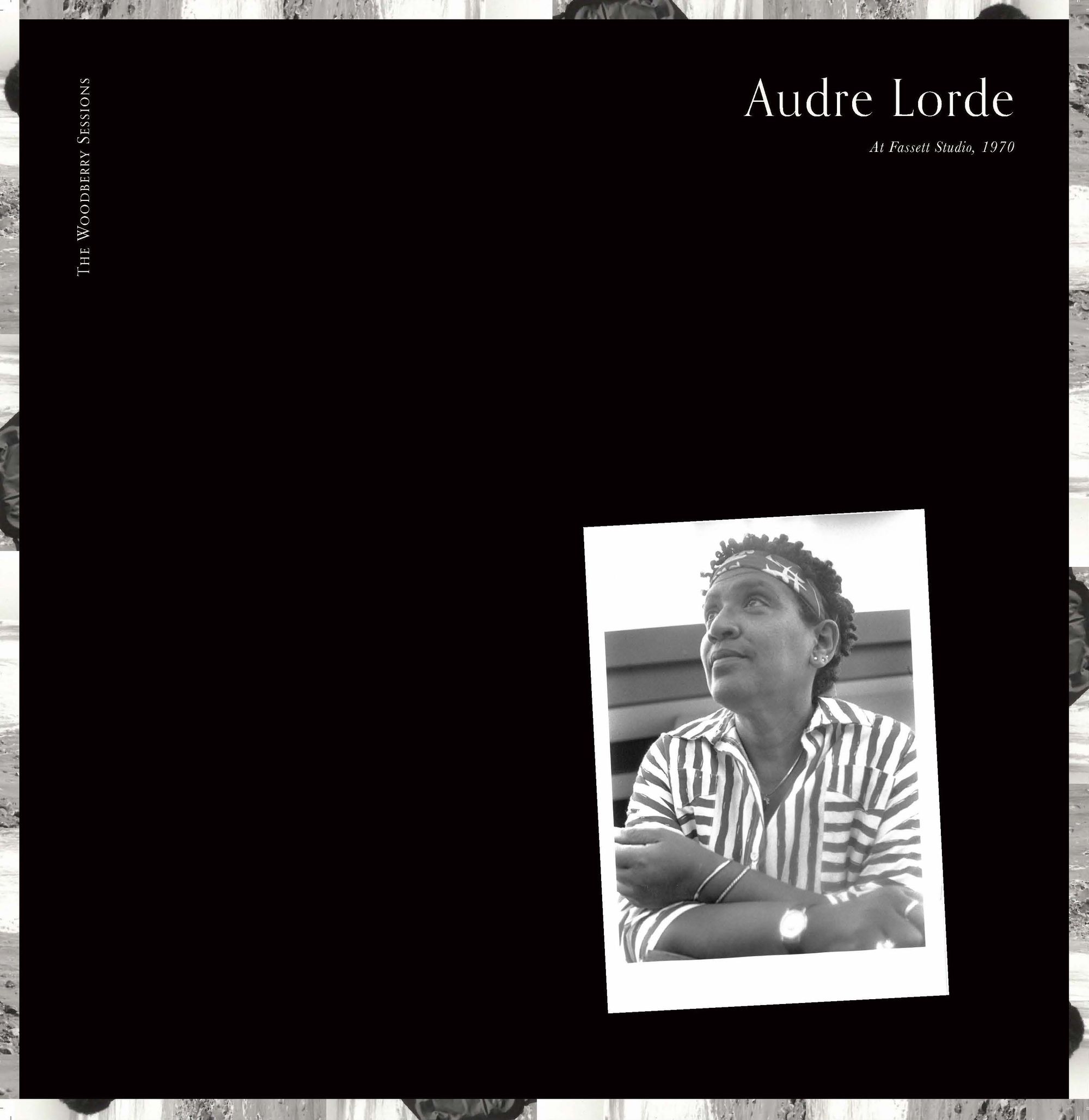Audre Lorde: Take My Word for Jewel
Audre Lorde, who was born in 1934 in New York City to Caribbean parents, became one of the foremost Black feminist writers and activists of the twentieth century. In the thirty years since her passing, her work—ranging from prose to poetry, autobiography to fiction, political to erotic—has only grown in resonance. On May 15th, 1970, aged 36, Lorde read a collection of her poems at the storied Fassett Studio, where they were recorded and archived for Harvard’s Woodberry Poetry Room. Many of the poems she chose to read speak of hunger and burning: the Lorde of these recordings was a poet and a woman at a crossroads, on her way to becoming the “Black lesbian feminist warrior poet mother” we know, learning how to negotiate, with language, a world where the stakes were always high.
Today, an LP of Lorde’s recording is out from Fonograf Editions. We’re pleased to present an audio excerpt from the record here, along with an essay by Carl Phillips, the acclaimed poet and one of Lorde’s most learned admirers, that he contributed to its liner notes.
—The Editors

Until listening to this recording, I’d never heard Audre Lorde’s speaking voice. I don’t think I had any particular preconceptions of how she’d sound. I just hoped she wouldn’t disappoint me the way so many of my poetry idols have, once I’ve heard them read; it’s amazing how many poets seem unable to read their own work well, by which I mean with a confidence that doesn’t shun humility, and with a persuasiveness that avoids sounding pedantic.
Confident and persuasive from the start, Lorde doesn’t disappoint. What I was most immediately struck by, though, was the exactness of phrasing Lorde gives to each word, something that goes beyond mere enunciation—this reading is like a master class in elocution. And as it turns out, this isn’t just a style that Lorde adopts when reading her poems; she sounds the same when speaking casually in between the poems. I don’t want to make too much of what quite likely was just how Lorde grew up speaking, instinctively. But in the context of this reading, and of Lorde’s body of work, I hear a very deliberate insistence on precision—precision as the main weapon with which to negotiate a world where the stakes—politically, bodily, in love and in war—are always decisively high. Michael Palmer has spoken of words as a sacrament to be handled accordingly with great care. For Lorde, it’s as if great care were necessary, yes, but more because, for her, language is not so much sacred as explosive: I am making something dangerous here, Lorde seems to say, I could do great damage with what I make; I could destroy myself, if careless, in the course of making.
*
How to get at what’s essential, at the essence—of ourselves, of those whom we love, of a society that seems reluctant, at best, to include all of us? “I am trying to tell this without art or embellishment,” Lorde says in “Blood Birth.” The poems display great artistry, of course. But it’s also the case that, as with how she reads, what for Lorde defines artistry is a spareness, an exactness, an avoidance of overcrowding a poem with images; Lorde knows the single right image is much more powerful than several less carefully chosen ones. She also understands the potential (the tendency?) of images, when brought together, to work in unison as camouflage—form that can distract from the substance behind it. It’s an odd conundrum. The work of a poet is to gather words and imagery together to convey a particular meaning or set of meanings. But the imperative that goes with that is to recognize how words, like imagery, can deceive us when brought together. And Lorde suggests, even in how she’s arranged her set of poems for this recording, that this deception has the potential to occur in contexts that straddle public and private. It seems very purposeful how, right after a sequence of overtly ‘political’ poems – “The American Cancer Society…,” “Sewerplant Grows in Harlem…,” and “A Ballad of Black Childhood”—Lorde casually announces that the next three poems “are love poems.” The love poems which are then followed by “Conversations in Crisis,” where she could as easily be addressing a lover or a corporation when she distinguishes her addressee’s words from “the false heat in the voice,” a distinction that alerts her to the power of words to deceive: this is what marketing knows, this is what those whom we trust most intimately also know—what we ourselves know. Who of us hasn’t betrayed someone, even if incidentally, even if it’s ourselves we betrayed?
“Take my word for jewel”—that’s how Lorde, aloud and on the page, delivers each word, with a consciousness of any word’s value, and of its powers both to destroy and to illuminate. “Some words/Bedevil me.” Love is a word, too:
Love is a word another kind of open—
As a diamond comes into a knot of flame
I am black because I come from the earth’s inside
Take my word for jewel in your open light.
For me, these lines say everything about Lorde’s gift to American letters, namely, her commitment to the poet’s responsibility to look honestly, truthfully, at the worlds around and within us, to find the essence of human interiority—“the total black, being spoken/From the earth’s inside”—and to understand it through the clarity of open light, “another kind of open.” We have everything to lose—and, being mortal, we inevitably eventually lose it. All the more reason to take the full measure and value of what we have—this life—and to honor it by giving voice to each flashing aspect of it, word by word, jewel by jewel. Precision in this context becomes more than strategy. It’s an act of rescue—a choice. It’s an act of love.
—Carl Phillips, August 2022, Saint Louis MO ♦
Subscribe to Broadcast